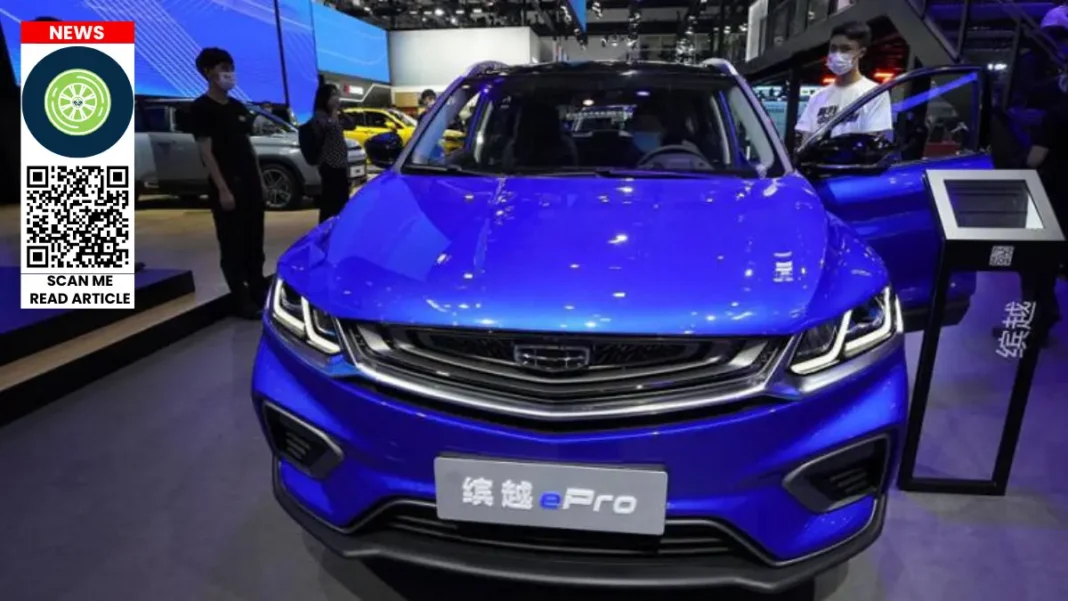China recently criticized the European Union’s decision to raise tariffs on Chinese electric vehicles, calling it “a blatant act of protectionism.” This move by the EU has significant implications for the global automotive industry and international trade relations.
Overview of the Tariff Increase
The European Commission announced that starting next month, provisional tariffs on Chinese automakers will take effect. These tariffs could rise up to 38%, a substantial increase from the current 10%, if ongoing negotiations with China fail to reach a settlement.
Tariff Details by Company
| Company | Current Tariff (%) | New Tariff (%) |
|---|---|---|
| BYD | 10 | 17.4 |
| Geely | 10 | 20 |
| SAIC | 10 | 38.1 |
China’s Response
He Yadong, spokesperson for the Chinese Ministry of Commerce, condemned the EU’s decision. “This action will harm the legitimate rights and interests of China’s electric vehicle industry, disrupt mutually beneficial cooperation in the new energy vehicle sector, and distort global automotive industry and supply chains, including those in the EU,” he stated during a weekly press briefing. “It is a blatant act of protectionism,” he reiterated.
Potential WTO Involvement
China has indicated that it reserves the right to bring the issue to the World Trade Organization (WTO) and will take “all necessary measures to safeguard the legitimate rights and interests of Chinese enterprises.”
Background of the EU Investigation
The EU Commission’s investigation, which began last year, found that China’s electric vehicle (EV) industry benefits from unfair subsidies. These subsidies pose a threat to EU battery electric vehicle (BEV) manufacturers by creating an uneven playing field.
US Involvement and Broader Trade Conflicts
Last month, US President Joe Biden also imposed significant tariffs on Chinese electric vehicles, advanced batteries, solar cells, steel, aluminum, and medical equipment. Biden argued that Chinese government subsidies provide Chinese companies with an unfair advantage in global trade.
Gradual Trade Conflict
Analysts warn that an escalating trade war could increase consumer prices and negatively affect exporters and workers on both sides. Both regions are crucial markets for each other: China, with its rapidly growing economy of over 1 billion people, and Europe, with a relatively affluent population of over 400 million.
Expert Opinions
“It’s like watching a slow-motion traffic accident unfold,” remarked Jens Eskelund, president of the European Chamber of Commerce in China, earlier this year. “The accident hasn’t happened yet, and … it is still possible to find an off-ramp. The situation is becoming urgent.”
Related Trade Disputes
In January, China launched an anti-dumping investigation into European brandy exports, including French cognac, in response to France’s support for the EU investigation that led to the EV tariff decision.
Additionally, the EU is investigating subsidies provided to Chinese wind and solar companies and examining whether China is unfairly restricting market access for medical devices, a long-standing grievance of European manufacturers.
Implications for Global Trade
The increased tariffs and ongoing investigations signal a potential for more significant trade disputes between China and the EU. These conflicts could disrupt global supply chains and impact the broader economy.
Impact on Consumers and Industries
The new tariffs could lead to higher prices for consumers and affect various industries. For instance, European car manufacturers might face increased competition and higher costs for imported components. Conversely, Chinese manufacturers may need to explore new markets or adjust their pricing strategies to remain competitive.
Conclusion
The EU’s decision to raise tariffs on Chinese electric vehicles marks a significant development in global trade relations. Both China and the EU have substantial stakes in each other’s markets, making it crucial for both sides to find a resolution that avoids further escalation. As the situation unfolds, the global automotive industry and broader economic landscape will be closely watching for any signs of compromise or continued conflict.


